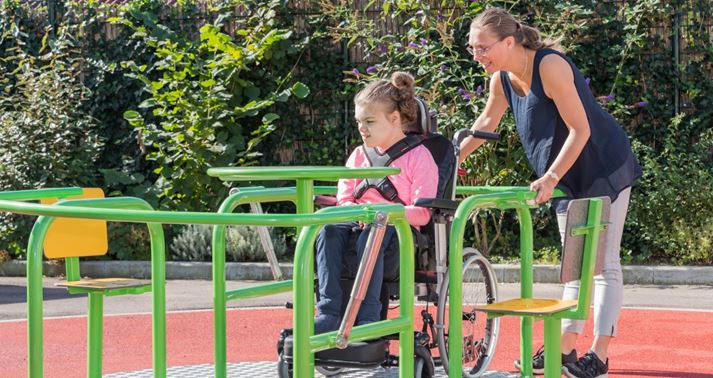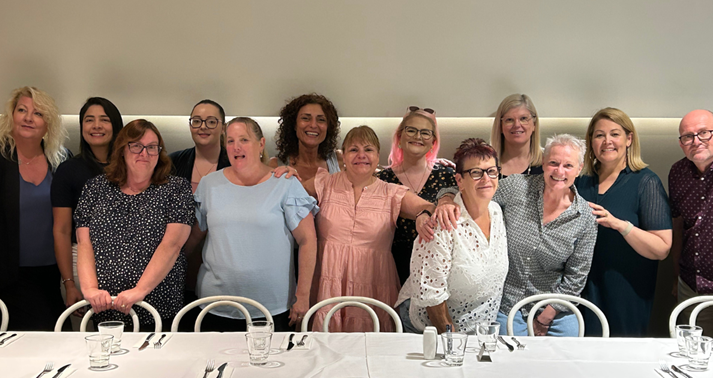Supported Independent Living (SIL): Helping You Live Your Way with the Right Support
04 April, 2022

What is Supported Independent Living (SIL)?
For people with disability, living independently can mean different things to different individuals. Some may want to live on their own with a bit of extra help, while others may thrive in a shared environment with support available around the clock. This is where Supported Independent Living (SIL) comes in, a tailored NDIS support designed to help participants live as independently as possible while receiving the right level of assistance they need at home.
Whether you're a participant exploring your housing options or a carer seeking clarity on how SIL works alongside Specialist Disability Accommodation (SDA), this guide offers everything you need to know.
Understanding Supported Independent Living (SIL)
Supported Independent Living (SIL) is an NDIS-funded support that helps people with disability live in a shared home or sometimes on their own, with support provided for daily living tasks. These may include:
- Personal care (e.g. showering, dressing)
- Cooking and meal preparation
- Cleaning and household chores
- Medication management
- Assistance with appointments and daily planning
SIL is typically best suited for people who have higher support needs and require assistance throughout the day or overnight.
The aim of Supported Independent Living (SIL) is to foster greater independence, empower choice and control, and support individuals to live a safe, fulfilling life in their chosen environment.
Who is SIL for?
Supported Independent Living (SIL) is designed for NDIS participants who:
- Have significant functional impairment or support needs
- Want to live independently from their family home
- Require support every day, including overnight
- Would benefit from living in a shared setting with other people who also receive support
It’s important to note that SIL is not a housing service. Rather, it’s the funding for support provided to someone in their home. The housing itself may be provided through another NDIS support called Specialist Disability Accommodation (SDA).
How SIL and SDA Work Together
While SIL funds the support staff and services, SDA is the funding allocated for the physical building or home itself.
SDA is designed for participants with very high support needs or extreme functional impairment, who require a specially designed home to live more safely and independently. These homes are purpose-built or modified to meet accessibility and support requirements, for example, homes with wide doorways, assistive technology, or ceiling hoists.
You might receive funding for both SIL and SDA in your NDIS plan if you need both:
- SDA: Pays for the accessible home
- SIL: Pays for the people and supports helping you live in that home
However, you don’t always need SDA to receive SIL. Some people receive SIL in standard rental properties or community housing arrangements.
Choosing the Right Supported Independent Living (SIL) Provider
Finding the right SIL provider can make a significant difference to your quality of life. A good provider will work closely with you and your support network to understand your goals, preferences, and daily routines. You should expect:
- A personalised support plan tailored to your needs
- Clear communication and regular reviews
- A safe and inclusive home environment
- Respectful, trained, and compassionate support workers
- Choice and control over how your support is delivered
Whether you're transitioning out of home, looking for more independence, or seeking a better match in your current living arrangement, SIL can open up new possibilities.
How to Get Supported Independent Living (SIL) in Your NDIS Plan
To receive SIL funding, you’ll need to go through a planning and assessment process with the NDIS. This includes:
- Evidence of your support needs, usually through assessments by occupational therapists or other allied health professionals.
- A detailed home and living supports request, outlining why SIL is the best option for you.
- Working with your Support Coordinator or Local Area Coordinator to ensure your goals are clearly presented.
If approved, the funding for Supported Independent Living (SIL) will appear in the Core Supports section of your NDIS plan, and you can then choose your provider.
McArthur Community Care: Trusted SIL Provider
At McArthur Community Care, we’re committed to empowering people with disability to live with dignity, choice, and independence.
Our Supported Independent Living (SIL) services are:
- Tailored to each person’s needs, goals, and preferences
- Delivered by experienced and compassionate support workers
- Focused on building independence and community participation
- Available with 24/7 staffing for both in-home and out of home care
We work closely with participants, families, and carers to find the right Supported Independent Living (SIL) arrangement, ensuring your choice and control.
Ready to explore SIL?
If you or someone you care for is considering Supported Independent Living, we’re here to help. Our friendly team will guide you through the process, answer your questions, and connect you with the right supports.
Share this Article
Related Articles
McArthur Community Care Awarded ACIS Certification and Recommended for Best Practice.
The McArthur Community Care team could not be prouder of our recent ACIS Certification and recommendation for Best Practice.
Changing NDIS Providers: How to Navigate Service Closures with Confidence
If your NDIS provider is closing services, your support does not have to stop. Discover your rights, how to switch providers with confidence, and how McArthur Community Care can ensure a smooth transition with reliable, long term support.
Learn MoreMcArthur Community Care SA Recognised for Best Practice
McArthur Community Care SA has achieved a Best Practice Rating following a recent NDIS surveillance audit, an honour awarded to only a select few providers nationwide. This milestone reflects our commitment to quality, governance, and person-centred disability support.
Learn MoreCreating a Compassionate Future for Disability Support
Empowering individuals with disability starts with equipping support workers with the right skills. McArthur Community Care advocates for quality training, respect, and inclusion to create a compassionate future for disability support.
Learn More



